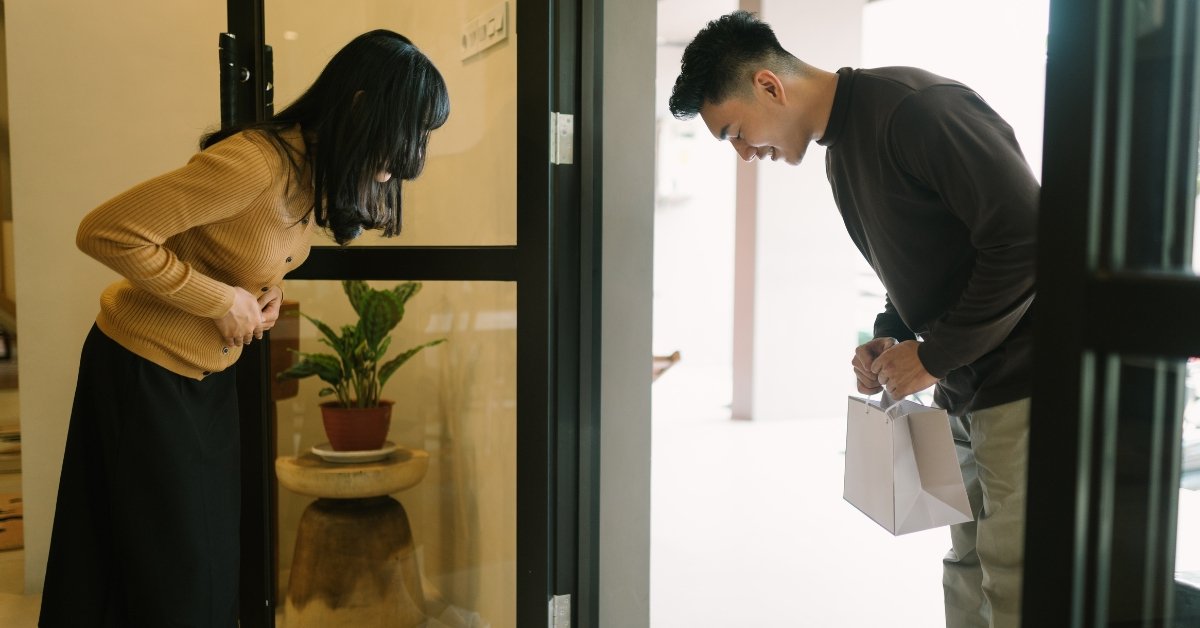Here are seven cultural etiquette rules for Muslim travellers to respect local customs while staying true to Islamic values. Travel with kindness and awareness!
Table of Contents
Introduction: Traveling with Respect and Awareness
Imagine being welcomed with open arms in a foreign land because you took the time to learn their customs and traditions.
Travelling as a Muslim is not just about exploring new destinations—it is about connecting with people while balancing your Islamic values with local customs.
For example, learning to greet someone in their native language can open doors to meaningful interactions.
Understanding cultural etiquette ensures you respect the communities you visit, making your journey enriching and memorable.
Cultural Etiquette Rules Muslim Travelers Must Follow
Here are 7 cultural etiquette rules Muslim travellers must follow to navigate the world with respect, kindness, and awareness.
1. Learn Basic Local Customs and Greetings
Why It Matters:
A warm greeting in the local language shows respect and can instantly build rapport. In countries like Thailand, the traditional “wai” (palms pressed together with a bow) is more appropriate than a handshake, while in France, a polite “Bonjour” can set the tone for positive interactions.
Real-Life Example:
In Turkey, saying “Merhaba” (hello) and following it with a warm smile helped a traveller break the ice with shopkeepers, leading to a richer cultural exchange.
Pro Tip:
Use apps like Google Translate or Duolingo to learn key phrases like “hello,” “thank you,” and “please.”
2. Dress Modestly in Public
Why It Matters:
Modesty is a core value in Islam and is appreciated in many cultures. Dressing appropriately reflects Islamic principles and shows respect for local norms. For example, covering your shoulders and knees is often expected in places like Egypt or India.
Real-Life Example:
A traveller in Morocco chose to wear a long maxi dress with a lightweight scarf, receiving compliments from locals for respecting their cultural norms.
Pro Tip:
Pack versatile, modest outfits like maxi dresses, long-sleeve shirts, and scarves. These items are practical and culturally sensitive.
3. Be Mindful of Prayer Times and Spaces
Why It Matters:
Maintaining prayers during travel demonstrates dedication to your faith, but it is equally essential to be considerate when using public spaces for prayer.
Real-Life Example:
In Japan, a Muslim traveller found a quiet corner in a park for prayer and used a portable prayer mat. Locals appreciated the unobtrusiveness, fostering mutual respect.
Pro Tip:
Download apps like Muslim Pro or Qibla Connect to locate mosques and prayer spaces nearby. If praying in public, choose discreet locations and avoid high-traffic areas.
4. Respect Dining Etiquette and Food Customs
Why It Matters:
Dining customs vary significantly worldwide, and following them shows respect. In many Asian countries, eating with chopsticks has its own rules, while in Arab cultures, eating with your right hand is customary.
Real-Life Example:
In Malaysia, a traveller politely asked if a dish was halal, showing respect for both their beliefs and the server’s time. The staff appreciated the question and ensured the dish met dietary needs.
Pro Tip:
Research the local cuisine before your trip to avoid surprises. Politely inquire about the halal status of food and thank the hosts for their efforts.
5. Understand Gender Interactions
Why It Matters:
Gender interactions vary across cultures. Being aware of these differences helps you avoid uncomfortable or offensive situations.
Real-Life Example:
In Saudi Arabia, a male traveller did not extend his hand to greet a woman, respecting cultural norms of limited physical contact. Instead, he offered a warm verbal greeting, which was well-received.
Pro Tip:
Follow local cues regarding gender interactions. When unsure, stick to verbal greetings or a respectful nod.
6. Be Aware of Religious Sensitivities
Why It Matters:
Religious practices or symbols often hold deep cultural significance. Understanding and respecting these differences can help you avoid unintentional offences.
Real-Life Example:
A traveller visiting a Hindu temple in Bali adhered to removing their shoes and covering their legs with a sarong, which locals appreciated.
Pro Tip:
If visiting sacred sites, research their rules beforehand. Dress appropriately and remain quiet or follow instructions from guides or signage.
7. Observe Public Behavior and Gestures
Why It Matters:
Behavior considered normal in one culture may be offensive in another. For example, pointing with your finger in Malaysia or showing the soles of your feet in Thailand can be seen as disrespectful.
Real-Life Example:
In Thailand, a Muslim traveller accidentally pointed at a vendor but quickly apologized with a wai gesture. The vendor appreciated the apology and shared insights about Thai culture.
Pro Tip:
Research the cultural do’s and don’ts of gestures. When in doubt, observe locals and mimic their behaviour.
Conclusion: Embrace the Spirit of Cultural Exchange
Travelling with cultural awareness enhances your experience and reflects the values of kindness and respect central to Islam.
Following these seven cultural etiquette rules can create meaningful connections and enjoy a smoother journey.
Remember, small acts of respect—like learning a local greeting or dressing modestly—can leave lasting positive impressions on the communities you visit.
Ready to explore the world with confidence and grace?
Check out our blog for more travel tips tailored to Muslim adventurers.
Remember to share your travel experiences in the comments below!
Trivia
Did you know that the “wai” greeting (palms pressed with a slight bow) reflects Buddhist beliefs in kindness and humility in Thailand? Using it appropriately can earn you instant respect from locals.
FAQs
What should I do if I accidentally offend someone?
Apologize immediately and sincerely. A warm smile and acknowledgement of your mistake often go a long way in resolving misunderstandings.
Are there universal etiquette rules to follow?
Yes! Being polite, showing gratitude, and maintaining modesty are universally appreciated gestures, regardless of culture.






